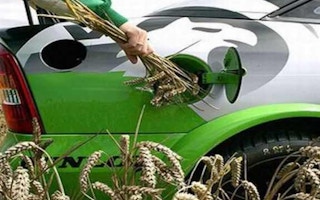New research carried out for the European Commission shows some crop-based biofuels meant to protect the environment are up to twice as polluting as conventional fossil fuels, a draft seen by Reuters shows.
The study by the Joint Research Centre (JRC), the Commission’s in-house research body, confirms the findings of earlier EU studies that using biodiesel made from crops such as rapeseed as transport fuel does the climate more harm than good.
The report will stoke the debate on proposals to weaken an existing EU biofuel target by limiting the use of so-called first-generation biofuels that compete with food crops.
Members of the European Parliament will hold a committee vote on Thursday on the Commission’s proposal to limit crop-based biofuels to 5 percent of energy consumption in transport, compared with an overall target to get 10 percent of transport fuel from renewable sources by 2020.
The 10 percent target was introduced in 2008 and was expected to be chiefly met with crop-based biofuels. Since then, science has moved on, and a series of studies has underlined the potential environmental damage from some biofuels.
The latest JRC study, in contrast with previous studies based on highly complex economic modelling, used historical data to predict future shifts in land use as a result of using crops to make fuel.
The study confirmed previous findings that fuels made from cereals and sugar crops have much lower carbon emissions than those from vegetable oils such as rapeseed oil, palm oil from Malaysia or soyoil from the Americas.
Emissions from one litre of biodiesel made from imported soyoil are equivalent to burning up to two litres of diesel from fossil fuel, its data analysis found.
The reason some first-generation biofuels are considered a problem is that they increase demand for crops, displacing food production into new areas and forcing forest clearance and draining of peatland. This displacement is known as ILUC (indirect land-use change) and can result in enough carbon emissions to cancel out any theoretical savings from biofuels.
While scientists agree that both methods still include many uncertainties, the fact their results are broadly the same goes some way to tackling arguments from biofuel refiners that there is insufficient evidence to justify a policy change.
EU Climate Commissioner Connie Hedegaard and EU Energy Commissioner Guenther Oettinger last year together announced the proposed limit on first-generation biofuels in what was a major policy shift.
Since then, Oettinger has said he is willing to be flexible about the exact level. Some lawmakers are seeking to increase the cap to 5.5 percent in Thursday’s vote, while EU countries such as France have called for a cap of around 7 percent to protect existing investments.
After the committee vote, the European Parliament as a whole will decide its final position later this year before negotiations get underway with EU governments to finalise the rules.
Biofuel producers have said the Commission’s proposed cap is below the level of existing production capacity in Europe and would therefore result in plant closures and job loses.
Producers of bioethanol, which unlike biodiesel emerges relatively unscathed from the EU studies, say a 5 percent limit that fails to distinguish between the two would lock in the dominance of biodiesel, which currently accounts for more than two thirds of EU biofuel consumption.
Apart from being worse for the environment than fossil fuels, another human cost of biofuels is the possibility of adding to food price inflation.
The Commission proposal also includes ILUC factors to estimate the indirect emissions of biofuels made from cereals, sugars and oilseeds, but they carry no legal weight in a watering-down of an earlier draft proposal.
The Commission does not comment on documents prior to their official publication.










